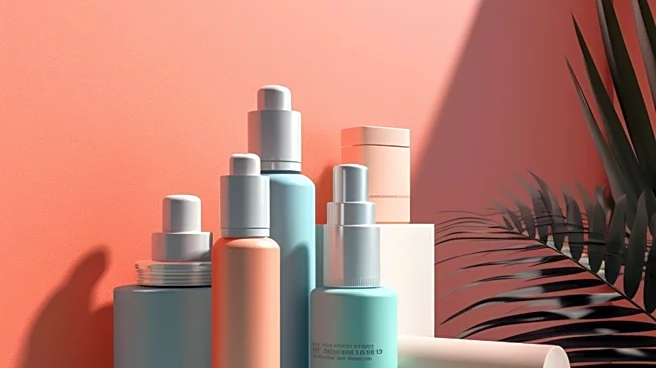What's Happening?
The global bath and shower products market is experiencing significant growth, currently valued at around $54 billion and projected to reach approximately $80 billion by 2032. This trend is driven by a renewed
consumer interest in bathing as a ritual for mental clarity and relaxation, rather than just a hygiene practice. Social media platforms like TikTok and Instagram are amplifying this trend, with hashtags like #BathTok garnering billions of views. Retailers such as Space NK and Cult Beauty are reporting substantial increases in sales of bath-related products, including bath oils and bubble baths. Entrepreneurs like Sharmadean Reid are launching new wellness lines that emphasize the cultural and historical significance of bathing, aiming to restore its status as a central ritual in daily life.
Why It's Important?
The resurgence of bathing rituals represents a significant opportunity for beauty brands to tap into a growing market segment focused on wellness and self-care. As consumers increasingly seek products that offer both emotional and physical benefits, brands that can effectively market the therapeutic aspects of bathing stand to gain a competitive edge. This trend also highlights a shift in consumer behavior towards more mindful and intentional self-care practices, which could influence broader industry trends in beauty and wellness. The financial implications are notable, with the market's projected growth offering substantial revenue potential for companies that can successfully capitalize on this trend.
Beyond the Headlines
The emphasis on bathing rituals reflects a broader cultural shift towards wellness and self-care, which could have long-term implications for the beauty industry. As consumers prioritize mental health and relaxation, brands that align with these values may see increased loyalty and engagement. Additionally, the focus on historical and cultural aspects of bathing could inspire new product innovations and marketing strategies that resonate with consumers seeking authenticity and depth in their self-care routines. This trend also underscores the importance of social media in shaping consumer preferences and driving market trends.









